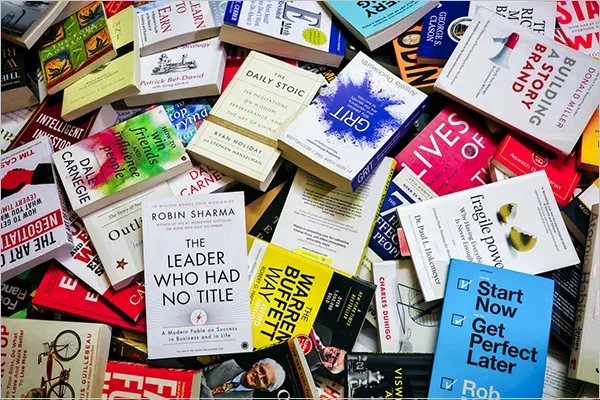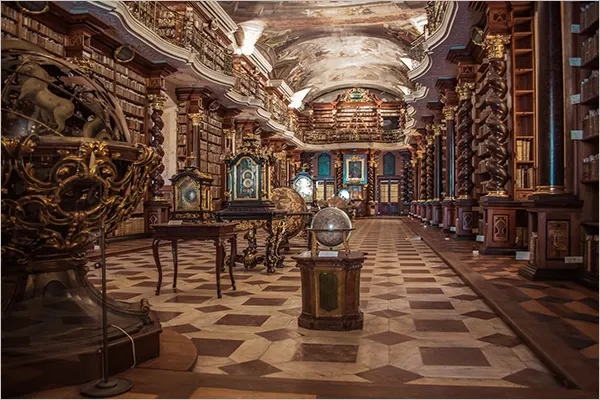
Key Takeaways:
- Fiction books are created out of the author’s imagination.
- Nonfiction books are based on real events and facts.
- The key element of a great fiction book is being memorable and evocative.
- The key element of a great nonfiction book is to spread a message or induce action.
| “A writer’s deepest impelling must be to ‘write’, not to be ‘read’. (Anonymous Writer) |
Being a writer, I understand. I truly do. It is a mental struggle to choose between fiction vs nonfiction books.
After all, one evokes your deepest passions and takes you to the unknown realms of imagination. While the other grounds you to reality/facts and helps you deal with the thing called ‘life.’
Hence, a discussion regarding the difference between fiction and nonfiction seems relevant; especially with the difference even in their text features.
In this blog, I have written about fiction versus nonfiction books, their genres, audiences, elements of a great book, and ways to choose between them.
Fiction Vs Nonfiction Books
When it comes to the fiction vs nonfiction books debate, the ideal question to ask is – “Did it truly happen, or was it pulled out of an imagination?”
However, without understanding the separate definitions, the conflict regarding the difference between fiction and nonfiction could not be solved. So, let’s first delve into that.

What is Fiction?
If you wonder what is a fiction book, it can be defined in the following points:
- Fiction content is created through the author’s imagination.
- Its primary purpose is to entertain.
- The fiction might be based on real events, but ultimately its content is imaginative.
What is NonFiction?
A nonfiction book definition covers the points below:
- Nonfiction books are based on reality and facts.
- The primary purpose is to inform and educate.
- For instance, the top personal training books would fall under the nonfiction category.
If you are a budding writer, you will also need to know about the different fiction and nonfiction genres.
Fiction and Nonfiction Genres
There are several fiction and nonfiction genres, among which you may decide to write your own book and even publish it on Kindle Unlimited on Amazon.
Some of the different types of book genres in the fiction category are:
- Literary Fiction: Literary fiction involves innovative writing style, depth of characters, and complexity of human emotions.
- Mystery and Thriller: With their crime incidents and investigations, mystery and thriller books contain pace, suspense, twists, and unpredictability.
- Romance: The fiction genres in romance are based on love, passion, emotional connections, and relationships.
- Science Fiction and Fantasy: This genre seeks to integrate science concepts, creatures, and higher imagination elements to build a completely different world for the readers.
- Historical Fiction: Historical fiction books are created by basing imaginary situations on real-life events in the past to develop similar culture, and emotions in the audience.
- Horror: The books in this genre contain elements of paranormal events and a fright-inducing atmosphere for the readers.

The fiction versus nonfiction debate could also be solved by simply observing the nonfiction genres.
- Biography: The biography is an in-depth insight into a single person’s life events, thoughts, and emotions over a specific period of time.
- History: History is a nonfiction genre that seeks to base itself on the facts and events that happened in the past.
- Self-help: The self-help novels are popular among those with above-average reading speed; and who wish to work for their self-growth and success.
- Science: Those writers who want to ask, “Is nonfiction real or fake?”, must read science books. These books are based on scientific research, technical concepts, and mathematical evidence.
- Cookbooks: The cookbooks are for food enthusiasts who love to read about cooking recipes, ingredient photos, and setting up the kitchen.
- Travel: Travelers who love to read travel memoirs, guides, and reviews prefer reading books and magazines in the travel genre.
Therefore, the fiction and non fiction meaning could be deeply understood through the type of content in them. To read nonfiction books, you may even download them for free through the Z-Library & its 34 alternatives.
What’s the Main Difference Between Fiction and Nonfiction Writing?: Elements of a Great Book
If you’re wondering, “What’s the main difference between fiction and nonfiction writing?”; you must understand that it’s the difference in their key elements.
The key elements of a great fiction book are listed below:
- The depth and complexity of the characters
- A constantly engaging and unique plot.
- a detailed and unique setting.
- An evocative, memorable, and distinctive writing style.
- A thought-provoking, unique theme of the book.
As a budding writer, if you want to analyze the above elements in detail, it might be useful for you to form a book club and engage in collaborative strategic reading.

Further, there are the key elements of a great non-fiction book:
- A clear aim is to solve a problem, spread a message, educate, or motivate.
- The ideas are backed up by strong research and facts.
- Inclusion of all the necessary details that the readers expect to know.
- A clear process that identifies the problem and presents the solution in a step-by-step manner.
- A writing style that is easy to follow and understand.
Thus, the above elements for a great book could help you write a book that sells.
What Type of People Prefer Fiction Versus Nonfiction?
Readers with different personalities and preferences prefer different fiction versus nonfiction books. It doesn’t matter if they ‘read’ or ‘listen’ to them on the audiobook subscription services.
There is a different class of people who prefer fiction books.
- People with high imagination and emotions.
- Most women and children
- Those who prefer entertainment more than information.
- People who use books to get away from reality.

Further, there are people who prefer nonfiction books to read:
- People who dwell more on logic than emotions.
- Those reading books with a specific aim.
- Readers with a strong craving to learn.
- People who prefer reality more than imagination.
Hence, different types of people prefer different genres of fiction versus nonfiction books to read.
How to Choose Whether to Write Fiction Vs Nonfiction?
It is not an easy job to decide which genre to choose among fiction vs nonfiction categories. However, if you think about it, it is too easy to decide.
- Gather knowledge about every writing genre.
- Think about your own skills and match the genre type with them.
- Identify your goals and overall purpose.
- Understand your audience and their expectations.
- Check with the publishers about the publishing requirements and saleability.
If you have understood what is fiction and non fiction, followed all the above steps, and are still confused, the only thing to decide is your own “gut feeling”.
To Sum it Up
Speaking from the heart! – for you as a writer, maybe it should matter in the least as to what is fiction vs nonfiction, or their several genres. What matters most is your own gut feeling and the longing to write that book.

Be it anything—romance, biography, mystery, science, or even high school books or kindergarten ones—if you have a feeling to do it, “just do it”, (never mind the non fiction and fiction difference).
FAQs
Ans: The key text feature of a fiction book is the beautiful images and attractive titles. For nonfiction, it is the illustrations, charts, diagrams, maps, and photographs.
Ans: “The Kite Runner”, “The Lord of the Rings”, “Animal Farm”, “To Kill a Mockingbird” and “The Book Thief” are all examples of fiction books.
Ans: “The Power of Now”, “A Brief History of Time”, “Sapiens: A Brief History of Humankind”, “The Psychology of Stupidity”, and “The Rise and Fall of the Third Reich: A History of Nazi Germany” are all examples of nonfiction books.
Ans: In general, most nonfiction books can be read in any order, as they are more based on facts than on a sequential format.
Ans: You may get your kids to read books simply by discussing with them their book choices and then reading them together.
Ans: In general, the nonfiction books are between 100 and 300 pages. However, they can be extended to more if the nature of the topic demands it.
Sources